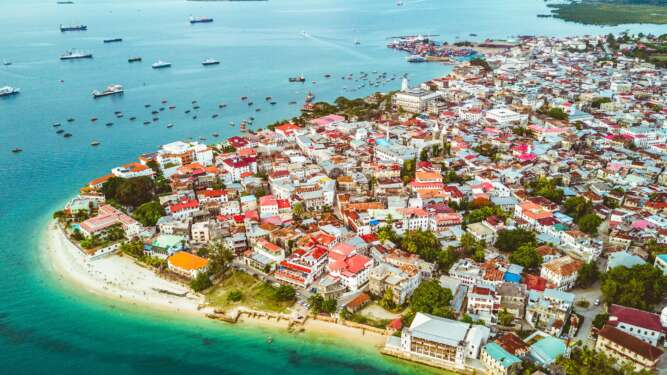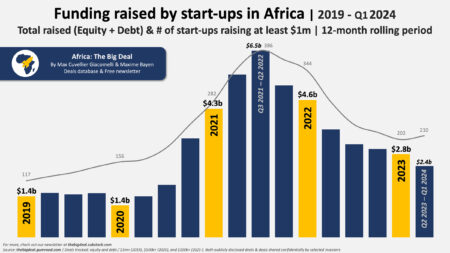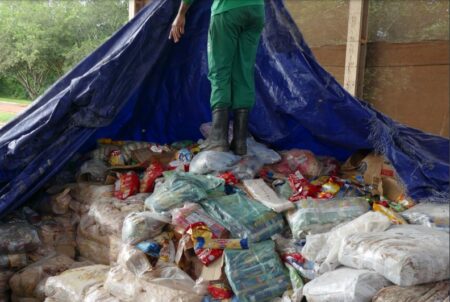The central bank of Tanzania’s economic bulletin for the quarter ending March 2021, analyzed the economic performance of the Zanzibar-semi autonomous region of Tanzania, which is widely known for its exotic tourism experience and spice farming.
The detailed report brought up interesting issues along the lines of clove production, inflation, public finance, imports, and exports.
READ:How Zanzibar’s presidency 100 days in office cast economic prospects
Clove performance
Zanzibar has marked its spot across the region within clove production over the past decade, hence over the past years, performance in the sub-sector has been dwindling.
According to the bulletin, “There were no cloves procured during the quarter under review due to low global demand, which resulted in a significant decrease in prices. As for seaweeds, 2,770.6 tonnes were procured compared with 2,236.5 tonnes procured in the corresponding period in 2020,” BoT report.
On the side of the aisle, Statista—a world noted business data platform, argued that the archipelago’s clove production performance has changed the way Zanzibar stands on the cash-crop, “once a leading world producer of cloves, the Tanzanian archipelago has struggled to restore the spices industry, which has led to severe fluctuations in the production volume,”
Inflation
The report showed that in the quarter ending March 2021 headline inflation slowed down to an average of 0.9 per cent from1 per cent registered in the preceding quarter and 5.4 per cent registered in the corresponding quarter in 2020.
The bank report noted that this decrease was mainly attributed to the “slowdown in non-food inflation, particularly cement and petroleum products (kerosene, diesel and petrol).
However, on March 4, 2021, a report published by Statista showed that, in November 2020, the inflation rate declined to 0.5 per cent, but also—in the previous month, the indictor was measured at 1 per cent, whereby Statista argued that, the fall brought the inflation rate to the lowest level registered in the law two years in Zanzibar.
Public finance
The central bank brought the archipelago’s budgetary operations to the table, whereby the government resources which includes domestic revenue and grants stood at around $107 million during the quarter of which domestic revenue was more than $106 million, accounting for 81.2 per cent of the target, while grants were more than $991,000.
“Tax revenue was $90 million, accounting for 80.8 per cent of the target, while non-tax revenue was $16 million, below the target by 16.3 per cent. The outcome was driven by a recovery in tourism activities, as well as government measures aimed at improving revenue collection such as improving the management of Zanzibar Ports Corporation,” the report argued.
Further down the line, during the quarter, government expenditure was recorded at nearly $93 million, out of which recurrent expenditure was recorded at more than $84 million, 70.7 per cent of the estimates and development expenditure was $10.9 million, 49.4 per cent of estimates.
“The financing of development projects from local resources was $6.4 million, while $3.8 million was from foreign sources,” the report argued.
However, on government expenditure, the report noted that government expenditure topped at around $95.7 million, out of which recurrent expenditure was $84.5 million, which is 70.7 per cent of the estimates and development expenditure was $10.9 million, 49.4 per cent of the estimates.
“The financing of development projects from local resources was $6.6 million, while $4055,377 was from foreign sources” the report cited.
Meanwhile, on debt developments, the debt stock rose to $385 million in the quarter ending March 2021 from around $352 million in the corresponding quarter in 2020.
Out of the total outstanding debt stock, external debt was $296 million, which is equivalent to around $299.6 million and the rest of the balance was domestic debt.
“In terms of composition, multilateral and bilateral institutions accounted for the largest share of 64.5 per cent of the external debt stock, the balance was export credit and commercial. loans. As for maturity profile, debts maturing above 20 years accounted for the largest share,” said the report.
External sector
On Exports, the report noted that the performance slowed down, on the exportation of goods and services by 35.9 per cent which is $41.3 million, from the amount in the quarter ending March 2020.
“The value of goods exports was $5.2 million, lower than $17.1 million recorded in the corresponding quarter in 2020, mainly driven by the decline in cloves exports. Meanwhile, services receipts decreased by 29.3 per cent whilst services payments increased by 12.5 per cent from the amount recorded in the corresponding quarter in 2020,” the bulletin said.
However, on imports, the bulletin argued that the volume of goods and services imported was low to $119.6 million from 4128.7 registered in the preceding quarter.
“The imports were moderately higher than USD 117.6 million registered in the corresponding quarter in 2020, mainly driven by an increase in services payments,” the BoT report argued.
The bulletin also noted that the goods imports took a nosedive by 2.4 per cent which is equivalent to $83.5 million in the quarter ending March 2021, with much of the decrease recorded in imports of capital goods.
READ:Central bank report analyzes Zanzibar economy closely











